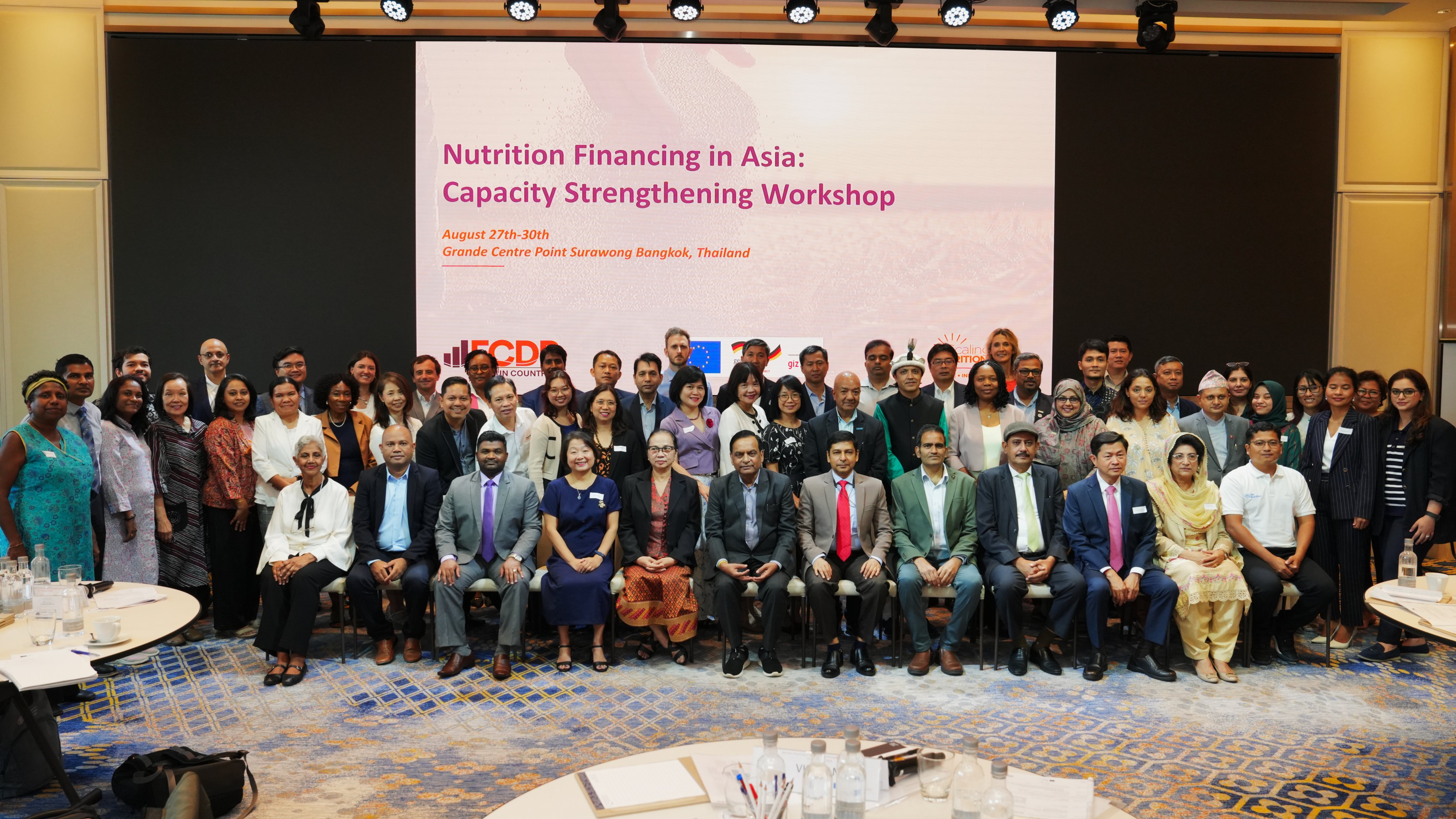Financing nutrition for sustainable development
By Dr. Nazeer Ahmed, Chief of Nutrition Ministry of Planning Development & Special Initiatives, Pakistan SUN Focal Point and SUN Movement Executive Committee member
Later this month, in Sevilla, Spain, world leaders and finance ministers will gather for the 4th International Conference on Financing for Development. As governments and institutions debate how to mobilize and allocate resources to achieve the Sustainable Development Goals (SDGs), one issue stands out: nutrition.
Better nutrition is the foundation for progress across health, education, economic growth and social development, however it remains severely underfunded. Despite its fundamental role and a failure to meet most of the World Health Assembly targets, nutrition funding represented a mere 0.37 percent of total official development assistance (ODA) in 2022.
Today, nearly one in three people worldwide is affected by malnutrition: 148 million children are stunted, 45 million children are wasted, over 1.6 billion women and children face micronutrient deficiencies and 881 million adults live with obesity. This burden strains health systems, slows economic growth and perpetuates cycles of poverty. Failure to act risks costing the global economy approximately 5 percent of GDP each year and could result in up to US $41 trillion in losses over the next decade.
Yet the returns on investing in nutrition are clear: strong nutrition not only saves lives but also drives long-term prosperity. Between now and 2035, scaling up ten core interventions could prevent 6.2 million child deaths, avert 980,000 stillbirths, reduce 27 million cases of stunting and spare 144 million women from anaemia during pregnancy. World Bank experts calculate that every dollar invested in nutrition returns, on average, twenty-three dollars in higher productivity, reduced health expenditures and improved educational outcomes.
The Sevilla Conference offers a timely window to rethink how we finance nutrition by seizing new opportunities. When countries generate more of their domestic financing, they not only reduce dependence on unpredictable external aid but also strengthen ownership and sustainability of nutrition initiatives. Efficiency across sectors can be vastly improved by mainstreaming nutrition into health, education, food systems, climate, and social protection budgets. For example, integrating nutrition interventions with immunization services in the first 1,000 days ensures that mothers and children receive essential health and nutrition support together, maximizing impact during this critical window of development.
Tapping new financing streams can also unlock billions more for nutrition. By blending concessional loans from development banks with domestic budgets and engaging the private sector through co‑investment models or corporate partnerships we can further expand funding. At the same time, innovative instruments like social impact bonds and results‑based financing can attract capital by linking returns to measurable nutrition outcomes.
Another powerful opportunity lies in repurposing a share of the roughly US $800 billion spent annually on agricultural subsidies. Redirecting even a small portion toward incentives for better nutrition could transform food systems—rewarding farmers for growing diverse, micronutrient‑rich crops, supporting higher‑quality food processing and distribution, and enabling social protection programmes to include fortified staples or nutrition‑linked cash transfers.
The SUN Movement connects countries with financial stakeholders and mobilizes new partners and sectors that traditionally have not prioritized nutrition, including the development banks and the private sector. SUN also supports the development of policy, regulatory and fiscal frameworks, including integrating nutrition into food systems pathways and climate plans. By facilitating cross‑country learning, through regional workshops and peer to peer exchanges, SUN accelerates progress and ensures that successful models are implemented.
An example of this work was the Asia Regional Nutrition Financing Capacity Strengthening workshop hosted by the SUN Movement, the Finance Capacity Development Platform for SUN Countries (FCDP- led by Results For Development (R4D), the European Union and GIZ (through the Capacity for Nutrition (C4N) programme). The event brought together government finance, budget and planning officers, civil society advocates and technical partners (such as the UN, WB, ADB, and INGOs from both regional and country-level) from ten SUN countries in Asia to map each country’s existing nutrition allocations. Over three days of dialogue, participants shifted from acknowledging the size of the funding gap to crafting concrete visions for closing it through; engaging finance ministries at every stage; country-led resource mobilization; mainstreaming nutrition into planning and budgeting and using data-driven advocacy to secure political support.
 This workshop marked the first step in a broader, sustained initiative led by the SUN Movement to strengthen nutrition financing systems and supported by ongoing technical assistance, in-depth studies on budget tagging and tracking, and a follow-up regional convening planned for later this year.
This workshop marked the first step in a broader, sustained initiative led by the SUN Movement to strengthen nutrition financing systems and supported by ongoing technical assistance, in-depth studies on budget tagging and tracking, and a follow-up regional convening planned for later this year.
Following this first workshop, many countries progressed strategies to increase financial allocations to nutrition. Pakistan has organized follow-up nutrition financing workshops with the whole of the multistakeholder national platform and explored tracking nutrition expenditures within social protection programmes, while Indonesia convened agribusiness actors to explore co-investment models for smallholder nutrition. Viet Nam deepened its partnership with the World Bank to refine budget-tagging systems, and Lao PDR drafted a comprehensive resource mobilization strategy with technical assistance from UN agencies and regional development banks. Importantly, the workshop influenced the development of financial commitments at the Nutrition for Growth (N4G) Summit in March 2025 which will be instrumental in securing future financing. The countries’ experiences and lessons learned should be leveraged to accelerate global and regional discussions and inspire similar efforts elsewhere.
As the Financing For Development conference approaches, SUN Countries are reminding global leaders that delivering on the SDGs depends on closing the nutrition finance gap. If global and national actors turn plans into funded budgets, we can shift the narrative from “nutrition underfunded” to “nutrition unlocked”, demonstrating that strategic investment in nutrition ignites a virtuous cycle of healthier populations, stronger economies and sustainable development.